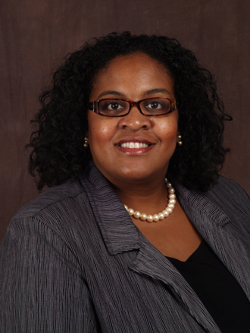CHP’s Márquez appointed to Phila. Board of Health
| As the director of the Master of Public Health Program at the College of Health Professions, Shannon Márquez’s cell phone rings a lot. But when she answered a call late last month, she wasn’t prepared to hear Mayor Michael Nutter’s voice on the other end, personally asking her if she would be willing to serve the Board of Health for the city of Philadelphia.
“It was a pleasant surprise,” said Márquez, an associate professor of public health. “I was deeply honored to have been nominated and selected by the mayor himself.” “Philadelphia has one of the oldest city health boards, which was created to counter an epidemic of yellow fever and monitor sanitary conditions within the city,” she continued. “It’s a humbling experience, to be invited to serve on a board with such a rich history.” Márquez received word earlier this summer that she was nominated to the board from the Commissioner of Health Services Office, but it is ultimately Nutter who picks from |
 Photo courtesy of Shannon Márquez
Shannon Márquez
|
|
hundreds of nominations to decide who will serve on the seven-member board. “I’m excited about serving on the board,” said Márquez. “I think it’s a great opportunity to provide leadership and help set policies to promote and advance community and environmental health to all Philadelphians.” As a member of the board, Márquez will help advise and create policies for the city’s Department of Public Health, which provides and monitors public health services including communicable disease prevention and treatment, food safety, and air quality control. At Temple, Márquez’s research focuses on a number of public health issues, but her passion is community environmental health assessment and global health issues. “Environmental health encompasses the assessment and control of factors in the natural and built environment that can potentially affect health,” she said. “Its focus is preventing disease and creating health-supportive environments, which can help protect and improve the health of entire communities.” In addition to her work in Philadelphia, she participates in a number of international and environmental health training initiatives in Africa and has been invited to lecture at institutions and conferences worldwide. Márquez notes that global health issues are an important part of meeting the health needs of Philadelphians. “Global health issues transcend geographic boundaries,” she said. “Some health concerns and issues that would seem exclusive to developing countries, things like maternal and child health, HIV/AIDS, and preventing and managing chronic diseases, exist right here in Philadelphia for a number of marginalized and vulnerable population groups.” “To that end,” said Márquez, “public health is global health.” |
|